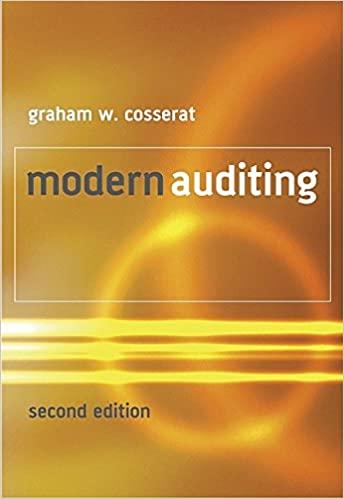Question
DIscussion: Government is known to utilize a product's elasticity measures to set taxes and subsidies. Use this information to set policy on one of the
DIscussion:
Government is known to utilize a product's elasticity measures to set taxes and subsidies. Use this information to set policy on one of the following products: tobacco products, petroleum products, agriculture products, or medical products according to your goal. Research the government's tax/subsidy policy in these areas and any objectives of the tax policy. State your goal, your prescribed action, and why you believe it will work using the information you found.
Response:
The product I would choose to create a policy on is petroleum, due to its relative inelasticity and its place as a normal good. My goal in placing taxes on petroleum would be to subsidize clean energy initiatives and the production and purchase of goods that play into that goal. Regarding the inelasticity of petroleum, due to many Americans use of motor vehicles personally as well as its use in transporting other goods and relatively few alternatives for plastics used in production of countless goods, a small tax placed on petroleum would not trigger a significant change in the quantity demanded. Some individuals and businesses may try to cut their demand by a little, but their ability to make large rapid changes in their consumption of petroleum products is very limited due to their investment in petroleum powered vehicles and the limited number of alternatives. Outside of major cities public transportation is generally poor or unavailable and many businesses do not have a better alternative than to continue using trucks to transport goods.
Looking at my own state, California, and the taxes put in place there is already a somewhat similar initiative. Instead of money going to subsidize clean energy and fuel alternatives, it is going into road repair which research has shown can lower fuel and repair costs for many Californians. By fixing rough roads passenger vehicles get better fuel mileage, regardless of their fuel type, and drivers spend less on repairs, possibly leading to overall savings for consumers. By increasing fuel mileage, whether it be petroleum or an alternative such as electricity, it also lowers emissions and reduces environmental impact.
Questions:
So, what percentage of tax changes you do expect here and why? Could you add some examples ( sometimes from a different other country), that shows the gains and loses related to such tax applications?
Could someone help me out here in 200 words or so? Thank you.
Step by Step Solution
There are 3 Steps involved in it
Step: 1

Get Instant Access to Expert-Tailored Solutions
See step-by-step solutions with expert insights and AI powered tools for academic success
Step: 2

Step: 3

Ace Your Homework with AI
Get the answers you need in no time with our AI-driven, step-by-step assistance
Get Started


